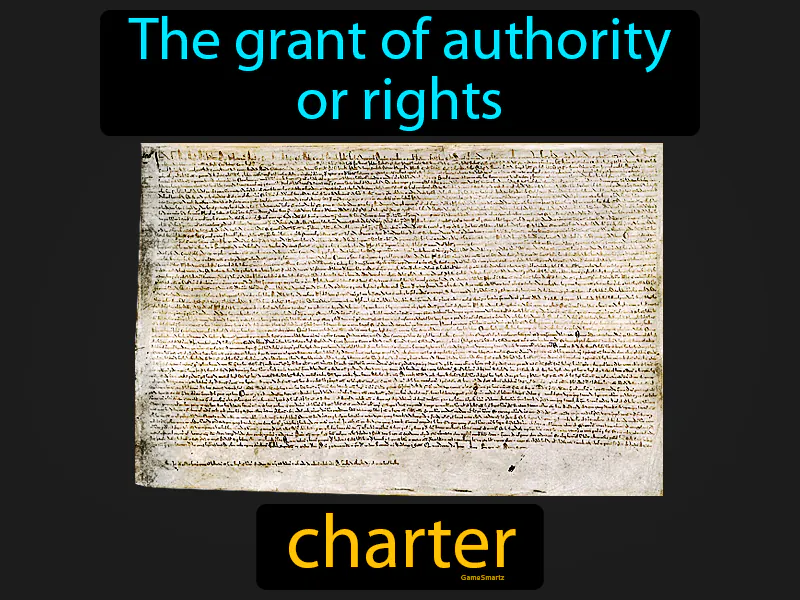Charter
Charter: Easy to understand
During the Rise of Europe between 500-1300, a charter was a formal document issued by a monarch or ruling authority granting specific rights or privileges to individuals, towns, or organizations. These charters were important because they allowed towns to self-govern, trade freely, and protect their rights, helping them grow economically and politically. They responded to the need for stability and order in a time of feudal chaos and set the foundation for modern legal systems. Today, charters still matter as they guide the operations of organizations, like schools or cities, ensuring they follow agreed-upon rules and support community needs. For example, a school charter can establish policies that impact how students learn and teachers work, directly affecting the quality of education and daily experiences.

Practice Version

Charter: The grant of authority or rights. Charter. In history, a charter is a document that outlines the rights and privileges granted by a ruler or government to a group or organization.